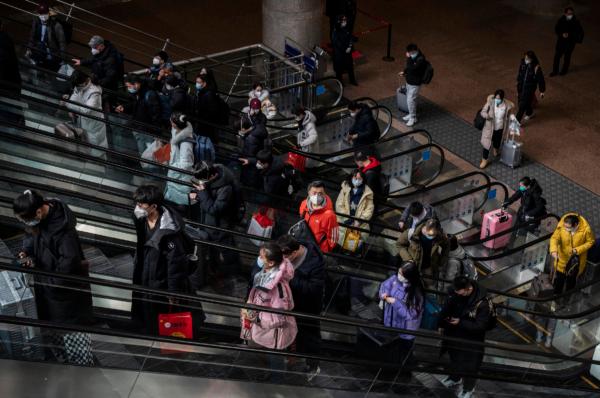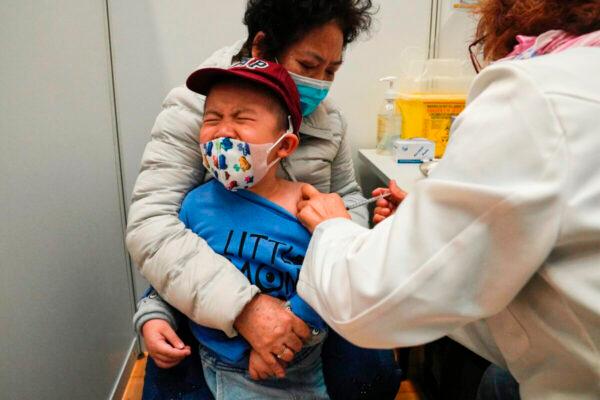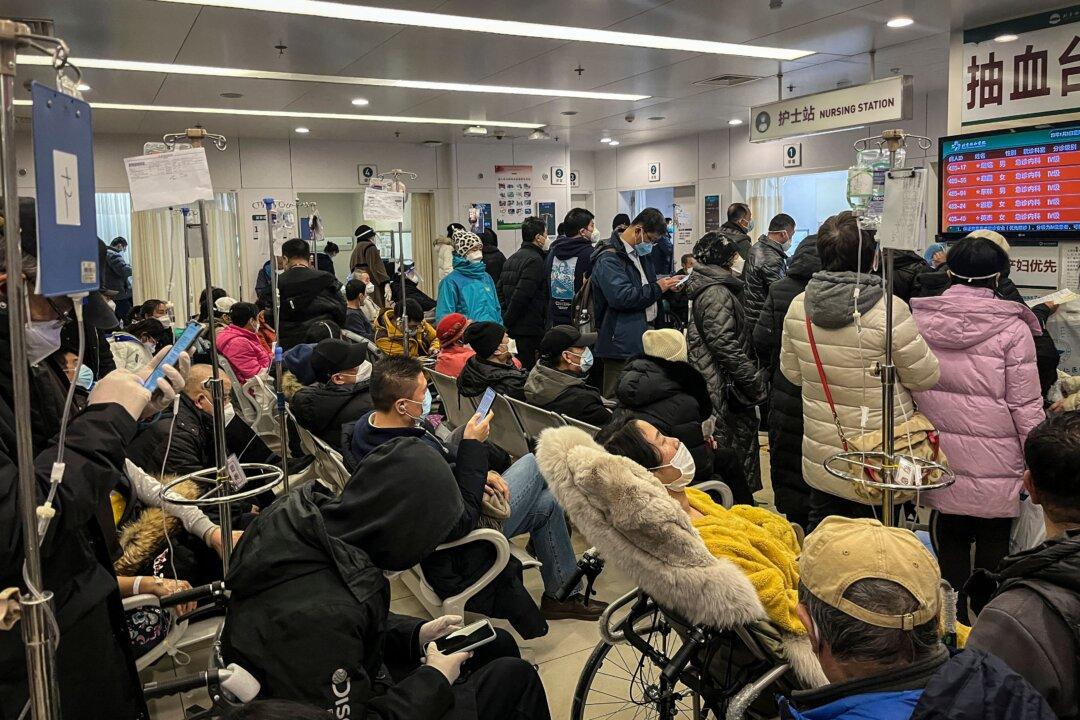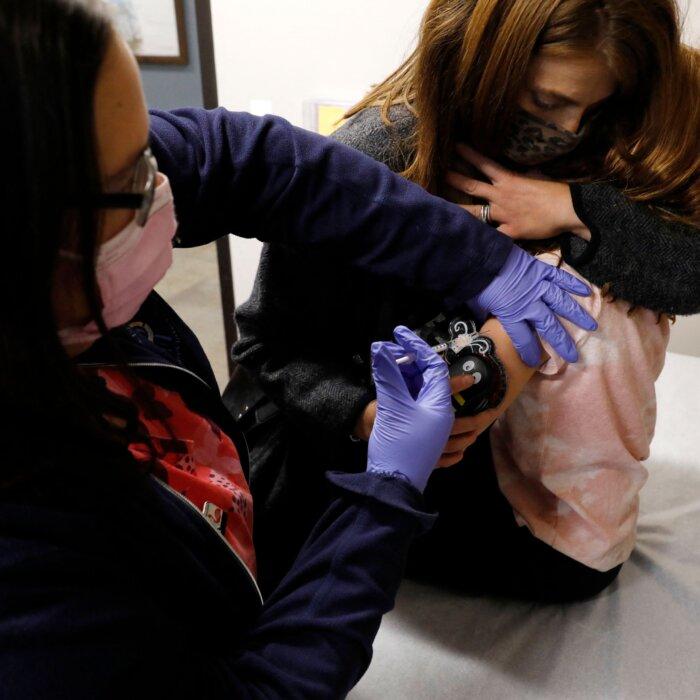Chinese health authorities are warning of a COVID-19 peak in February amid an ongoing pneumonia outbreak sweeping across mainland China.
Meanwhile, a major Chinese vaccine manufacturer has ceased its production of the first generation of COVID-19 vaccines.
Residents in Beijing have revealed that sudden deaths and severe cases are increasing amid the outbreak, with one 3-month-old baby in an intensive care unit (ICU) infected with pneumonia.
The Beijing Municipal Health Commission stated in its latest report on Jan. 11 that acute respiratory infectious diseases have been spreading at an epidemic level and that the main pathogens responsible are influenza viruses. Influenza will still be at epidemic levels over the next few weeks, according to the commission.
It stated that the possibility of an increase in COVID-19 infections in the near future can’t be ruled out.
According to the report, from Dec. 1, 2023, to Dec. 31, 2023, Beijing reported a total of 238,918 cases of 20 notifiable infectious diseases, including COVID-19. From these, there were a reported 25 deaths.
In a Jan. 8 update from the Chinese Center for Disease Control and Prevention, authorities reported 14,171 newly confirmed COVID-19 cases, which was double the number reported on Jan. 7. It also reported three COVID-19 deaths.
The ruling Chinese Communist Party (CCP) has been accused by the international community of seriously underreporting COVID-19-related data and covering up the scale of the COVID-19 outbreak in China since the initial outbreak in Wuhan in late 2019. COVID-19 was originally called “Wuhan pneumonia” because of the disease’s origins and symptoms.
Wei Yuquan, an academic and immunologist at the Chinese Academy of Sciences, told China-based media on Jan. 11: “Based on past virus transmission patterns, our country should see a peak of COVID-19 infections. Many people will travel around Chinese New Year [Feb. 10], and this peak is expected to occur in February, around the Chinese New Year.”

Beijing Outbreak
This wave of pneumonia began to be noticed in China in September 2023, although it was spreading mostly among children. Cases spiked upward in mid-October 2023 and worsened in November 2023, spreading to other age groups and continuing to sweep across the country.The CCP attributed the outbreak to cross-infections of influenza, mycoplasma pneumonia, respiratory syncytial virus (RSV), rhinovirus, and other respiratory infections while avoiding mention of COVID-19.
However, the public and international community haven’t been convinced by the CCP’s official narrative. Recently, amid the raging pneumonia outbreak in mainland China, there have been increased reports of sudden deaths among young and middle-aged people, with the public suspecting a link to COVID-19.
Mr. Chai, a Beijing citizen, told The Epoch Times that hospitals are still overflowing with pneumonia patients and that this situation has been going on for months. He said many people around him aged 30 to 50 died suddenly and that this has happened more than in previous years.
“Officials dare not say the real cause of death, but everyone is speculating and discussing it privately,” he said.
Mr. Wu, another Beijing citizen, told The Epoch Times that many people have had colds and fevers this winter.
Mr. Sun, also a Beijing citizen, told The Epoch Times that the symptoms of people who have had a fever or cold are similar to those of COVID-19.

Peiya in Beijing, a social media account whose IP address is based in Beijing, posted a video on Jan. 11 about their 3-month-old baby’s infection and direct admission to the ICU.
“The whole family was scared to death,” the parent said in the video.
“My baby kept vomiting in the middle of the night, coughed with phlegm, and couldn’t breathe. He was admitted to the emergency room of the Beijing Children’s Hospital. We waited in line and got IV treatment at the hospital for two days. But instead of getting better, his condition got worse.”
They went to a private children’s hospital to avoid the long lines in Beijing Children’s Hospital, fearing that their baby wouldn’t be saved on time.
“We left at 5 a.m. for the emergency room of Beijing Kyoyo Children’s Hospital. The doctor said that the situation was very serious and the child was too young. If it were later, it might be life-threatening and the baby needed to be hospitalized immediately. He was admitted directly to the children’s ICU,” the parent said in the video.
“Being on IV treatment for three days, the baby still has a bad cough. When I asked the doctor what the specific cause was, the doctor said he was infected with RSV.”
Sinovac Halts Production
It was reported by Chinese media on Jan. 10 that Sinovac Biotech, a Beijing-based biopharmaceutical company focusing on vaccines, halted its production of all first-generation COVID-19 vaccines and stopped paying performance wages to employees of its COVID-19 project.Sinovac’s COVID-19 vaccine has been one of the Chinese-made vaccines officially approved and administered to the public in China over the past three years. The company was a major manufacturer of the inactivated COVID-19 vaccine.
A staff member at a community health service center in Shanghai’s Jing’an District told the media that the service center had long been out of stock of Sinovac’s COVID-19 vaccines.







